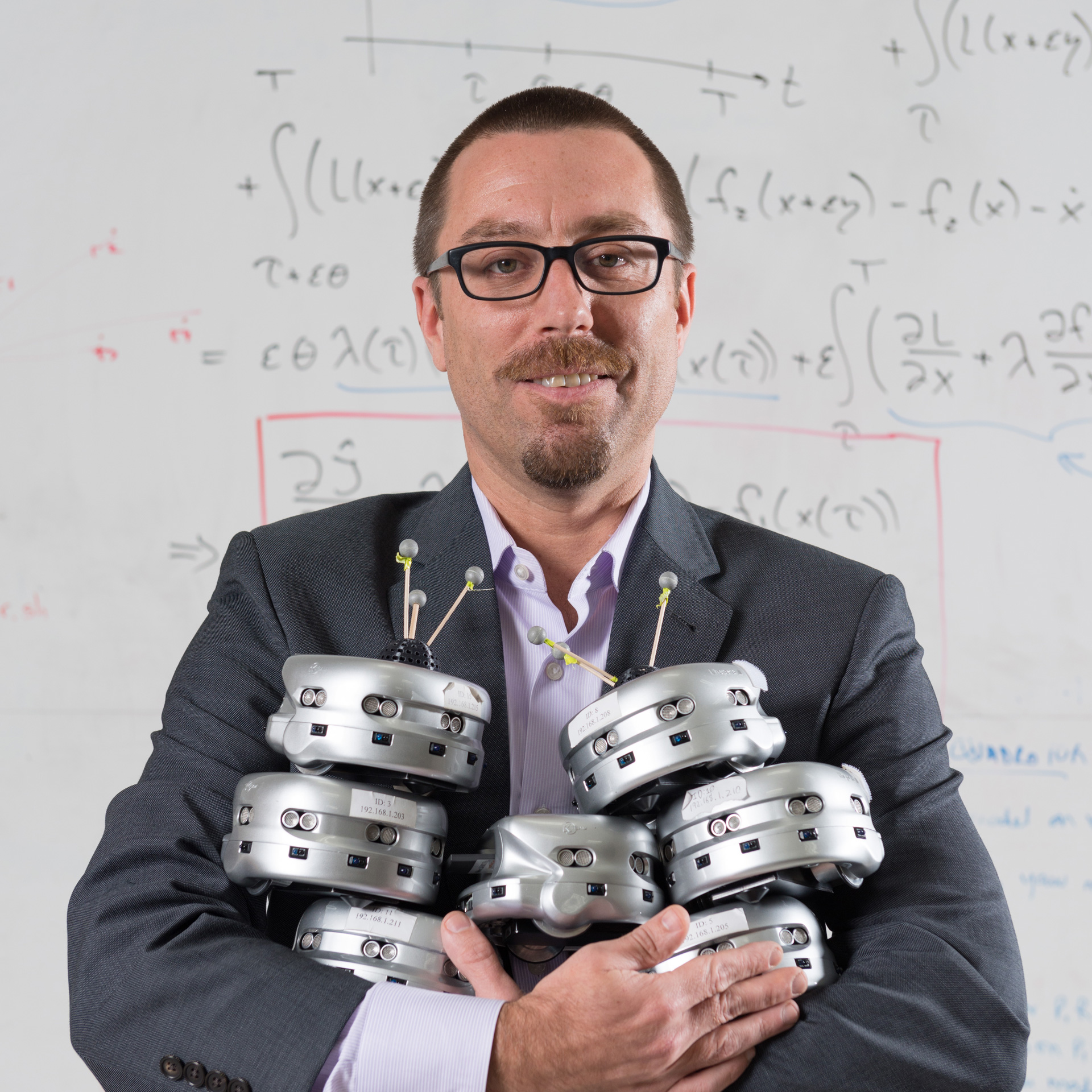
3:30 pm to 4:30 pm
1305 Newell Simon Hall
Abstract: By now, we have a fairly good understanding of how to design coordinated control strategies for making teams of mobile robots achieve geometric objectives in a distributed manner, such as assembling shapes or covering areas. But, the mapping from high-level tasks to geometric objectives is not well understood. In this talk, we investigate this topic in the context of persistent autonomy, i.e., we consider teams of robots, deployed in an environment over a sustained period of time, that can be recruited to perform a number of different tasks in a distributed, safe, and provably correct manner. This development will involve the composition of multiple barrier certificates for encoding the tasks and safety constraints, as well as a detour into ecology as a way of understanding how persistent environmental monitoring can be achieved by studying animals with low-energy life-styles, such as the three-toed sloth.
Bio: Magnus Egerstedt is the Executive Director for the Institute for Robotics and Intelligent Machines at the Georgia Institute of Technology. He is a Professor and the Julian T. Hightower Chair in Systems and Controls in the School of Electrical and Computer Engineering, with secondary appointments in the Woodruff School of Mechanical Engineering, the School of Interactive Computing, and the Guggenheim School of Aerospace Engineering. He received the M.S. degree in Engineering Physics and the Ph.D. degree in Applied Mathematics from the Royal Institute of Technology, Stockholm, Sweden, the B.A. degree in Philosophy from Stockholm University, and was a Postdoctoral Scholar at Harvard University. Dr. Egerstedt conducts research in the areas of control theory and robotics, with particular focus on control and coordination of complex networks, such as multi-robot systems, mobile sensor networks, and cyber-physical systems. Magnus Egerstedt is a Fellow of the IEEE, and has received a number of teaching and research awards, including the Ragazzini Award from the American Automatic Control Council and the Alumni of the Year Award from the Royal Institute of Technology.
Host: Katia Sycara
For Appointments: Stephanie Matvey (smatvey@andrew.cmu.edu)
